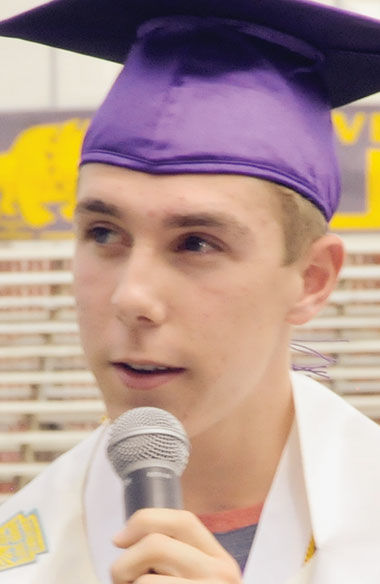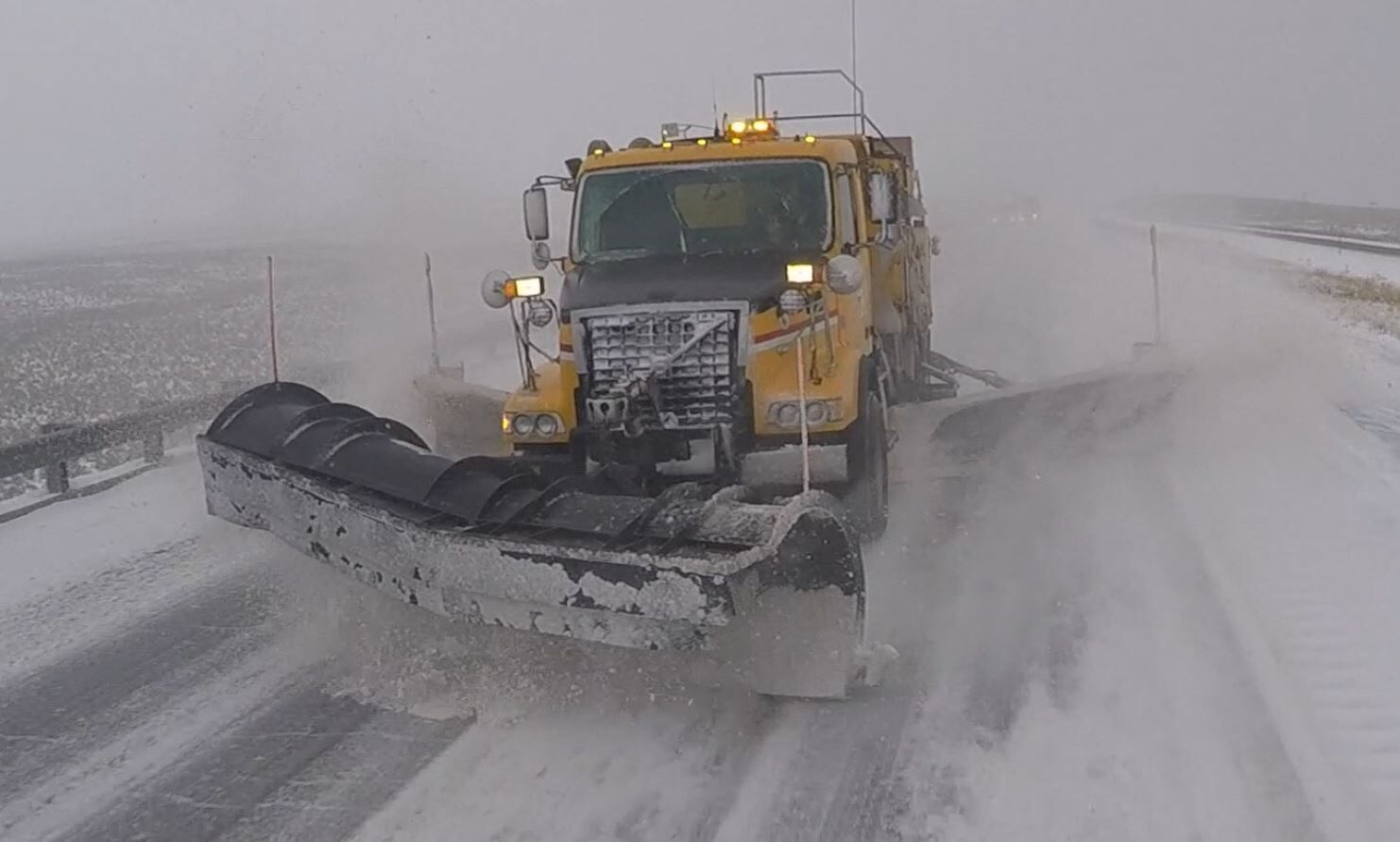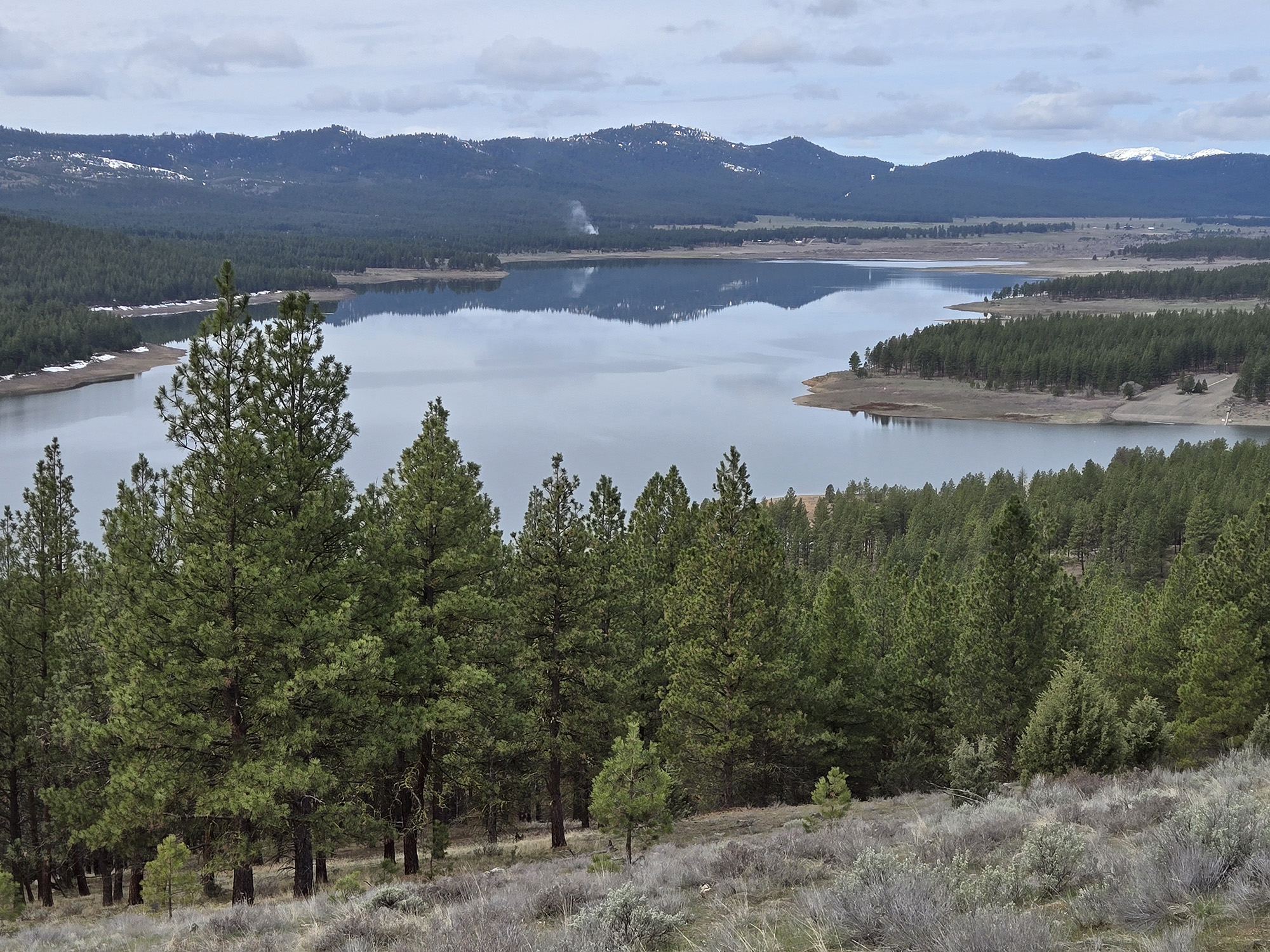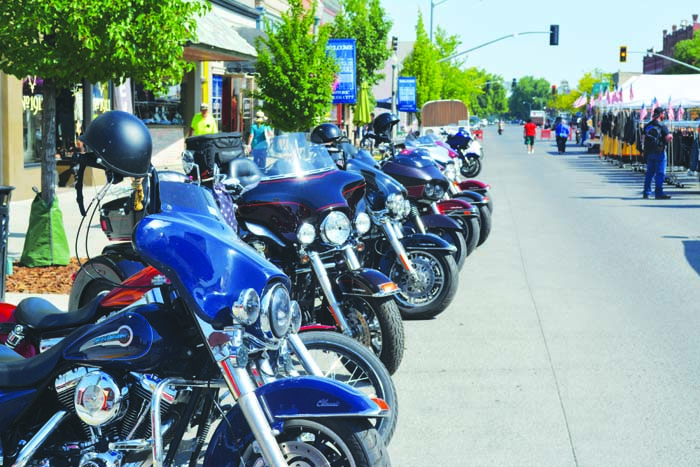Looking Forward
Published 2:49 pm Wednesday, June 8, 2016

- Looking Forward
Thomas Joseph urged Baker High School’s Class of 2016 to draw inspiration from a kindergartner who wanted only to work at the carnival when he grew up.
Trending
The setting was Chicago, the time a dozen or so years ago, just about when the BHS graduates were themselves getting ready for first grade.
The little boy’s name was Hap, short for Happy.
That graduation ceremony was not so different from the one that transpired Sunday in the 90-degree heat at Baker Bulldog Memorial Stadium, said Joseph, who this week finishes his first year teaching language arts at BHS and was asked by students to give the commencement address.
Trending
The scale was skewed, of course — 5-year-olds being conspicuously shorter than 18-year-olds — but the trappings of the two events, the mortarboards and the tassles and the gowns, were much the same.
And so was the question posed to the two sets of graduates, a question as integral to a commencement as the playing of “Pomp and Circumstance.”
All the kindergartners, Joseph said, were asked to step forward, say their name and what they wanted to be when they grew up.
The first little grad answered that she wanted to be a veterinarian.
The second said he wanted to be a detective like his dad.
Then it was Hap’s turn.
“Happy, working at the carnival,” Joseph said to the BHS graduates. “And who wouldn’t be? They’d probably pay you in cotton candy and sno cones, you know, work out a deal. The real world as seen only through the eyes of a child.”
But whether Happy’s career aspiration was realistic, Joseph suggested, perhaps isn’t the point at all.
Maybe that question is no more meaningful for graduates who are bracing themselves for professors and essay questions and intoxicating independence, than it is for graduates who still fumble the laces half the time when they’re tying their shoes.
Joseph proposed an alternate query, one that has more to do with life, or at least with what it means to live well.
Perhaps the better question, he said, is “not what to be in the world, but rather how to be in the world.”
Joseph, 46, who worked for five years as an adjunct professor at Northern Illinois and Aurora universities, didn’t diminish the value of education as he spoke to 123 teenagers on their final day as high school students.
But he noted that although the Class of 2016 belongs to the “most educationally poked and prodded” generation of American students, “tested and retested on what you knew, with many boxes to check,” it might be that filling in bubbles on a test form falls well short of defining what it means to receive an education.
“We know you probably forgot most of what you learned weeks after the tests we gave,” Joseph said. “Don’t worry — so did we.
“The truth is, knowledge doesn’t come in perfect little nuggets we can deposit in your head like packing your backpack for a trip,” he said. “Learning is like playing with Legos, building blocks that we add to as our experience grows and intellectual capacities develop. Blocks we connect and reconnect, moving pieces around as new information unfolds before us.”
Citing the immense amount of information that humans amass every day, and the spontaneity with which we can distribute that information thanks to the Internet, Joseph pointed out that “knowledge is fluid, not fixed.”
What this means, he told the graduates, is that a precondition to learning is the ability to forever wonder.
“Truth demands constant vigil by actors who will question it in good faith with hopes that the truths that we do settle upon will lead to justice, prosperity, and well-being for all who care to engage the conversation,” Joseph said. “If you remember anything, we hope you remember to question.”
Joseph told graduates that last weekend, after he failed to come up with ideas about how to frame his commencement speech, he drove to the Oregon Trail Interpretive Center, “hoping to find inspiration there, maybe build some historical context for the speech.”
There he met a man from the Walla Walla tribe whose ancestors hunted deer in the mountains around what became Baker City, and caught trout and salmon from its streams.
The man, Joseph said, taught him a Native American word that translates to “a sacred gathering place.”
Joseph asked graduates to think of Baker City as such a place, no matter where their lives lead them in the months and years after they walk across the football field and toward the vast world beyond its lush and well-tended borders.
“Remember your first black diamond run at Anthony Lakes, or midnight bonfires with your friends up in Washington Gulch,” Joseph said. “Picking huckleberries with your family at Marble Creek or morels up at Dooley. The hot spring of that optimism is here, in this place.”
Joseph also asked the audience to admire the graduates, to endorse their generation’s optimism despite an onslaught of pessimism about disappearing jobs and declining opportunity.
“Given the tumultuous ideological turmoil that hummed in the background of your entire academic career to date, I think we, the people gathered around you today, should applaud your optimism. I think we should applaud the generation that embraces the phrase ‘people before profits’ as a viable economic reality and not a zero sum, mutually exclusive dichotomy.
“We hope we have taught you to be happy in this dynamic world.”
Co-valedictorian Morgan Scilacci also emphasized in his speech how lucky he and his classmates were to have lived and learned in Baker City — and in the United States of America.
“This country offers opportunities and freedoms that no other place can, or will,” Scilacci said. “I feel so fortunate to live right here, even with this wretched heat. That gives me more comfort than any air conditioner.”
Scilacci also acknowledged the rare opportunity he had to speak on behalf of his fellow graduates.
“I gladly and humbly accept the honor,” he said.
Co-valedictorian Danielle McCauley recalled how she felt on her first day of kindergarten in Baker City.
“I will never forget how it felt to be excited, scared and hopeful, all at the same time,” McCauley said.
Graduating from high school has invoked that same curious mixture of emotions, she said.
“I challenge each graduate and member of the audience to live in the moment,” McCauley said. “Focus on those moments in your life that define who you are.”
Co-salutatorians Makenna Bachman and Madison Elms spoke of the friendships they have made at Baker High School. Elms quoted an excerpt from Linda Ellis’ 1996 poem, “The Dash,” which refers to the dash between the years of a person’s birth and death, and how what matters most is the life each of lives.
Co-salutatorian Koby Hansen spoke about the Class of 2016’s closeness, a relationship forged over 1,377 days together at BHS.
“We were always there for each other, and I think that is truly remarkable,” Hansen said.
He also thanked the community for its unflagging support.
“Because of how Baker raised us, we are compassionate,” Hansen said. “Baker has made us leaders.”
He noted that wherever he and his fellow graduates will go next — Hansen himself will study at UCLA — “we will always be a Bulldog. We’re all in this together.”
BHS Principal Ben Merrill, himself a Bulldog graduate who will start a new job with the Baker School District July 1, said the Class of 2016 “consists of some of the best and brightest who have walked the halls of our school.”









